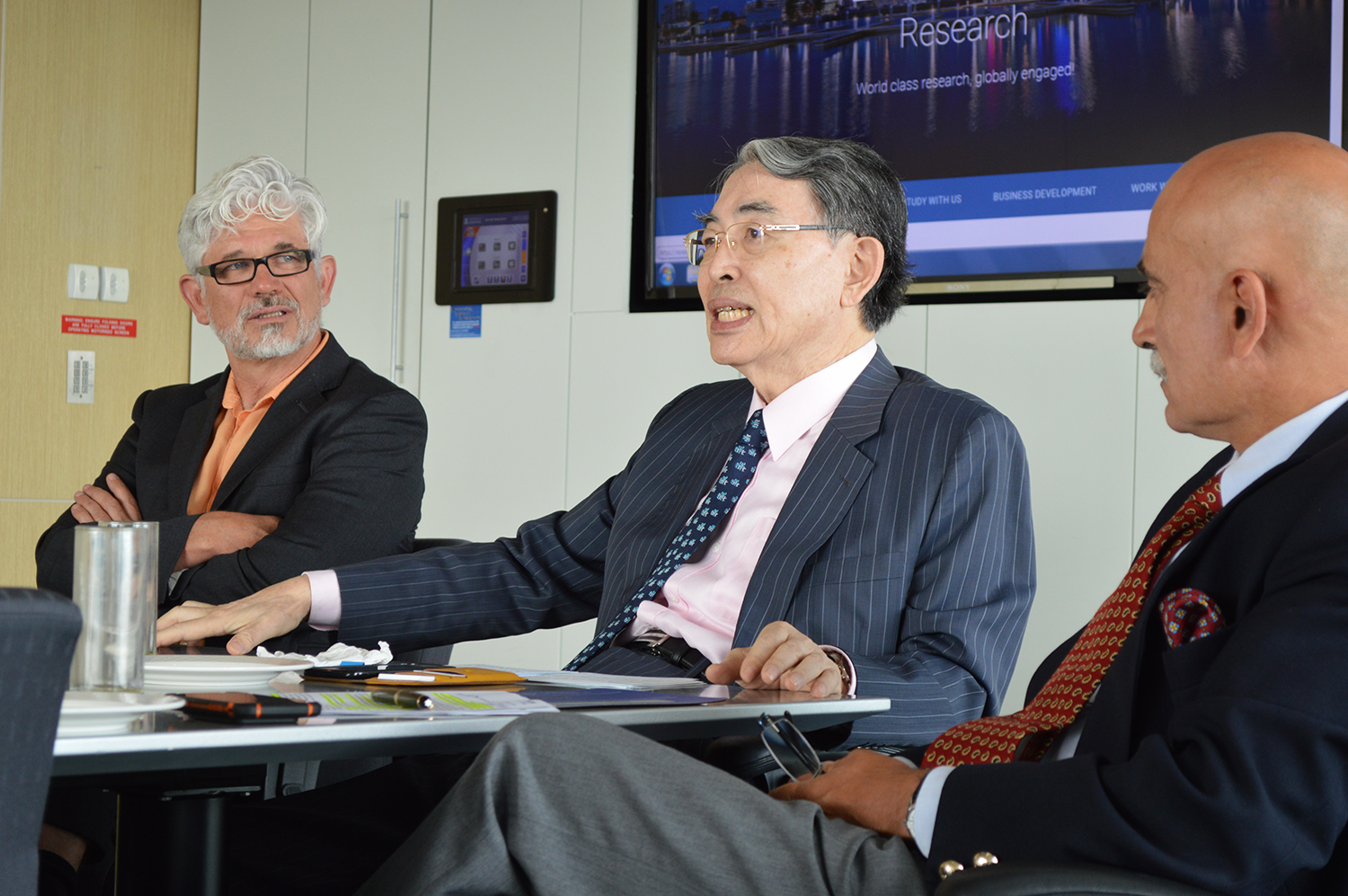Former ICC president: continue to seek global justice and change
"I have believed all my life that it is through law that we can change the world."

Professor Sang-Hyun Song, former president of the International Criminal Court, with (left) A/Prof Peter Rush, and (right) A/Prof Bruce Oswald
It is with that sentiment that Professor Sang-Hyun Song conducted his six-year term as President of the International Criminal Court from 2009, following his election to ICC’s first bench in 2003.
He shared his experiences in the role with a select Melbourne Law School audience prior to delivering the Sir Ninian Stephen Fellow Lecture on Wednesday night.
Professor Song said his lifelong aversion to war and violence grew from his childhood experience of the Korean War.
The images of decomposing bodies littering the streets when he exited an underground bunker in Seoul where he had spent three months in hiding during the war have never left him.
Rather than violence, he sought justice through law, and has carried that outlook throughout more than 30 years as a legal academic and his term at the ICC.
The ICC was established under the Rome Statute in 2002 following a number of ad hoc international tribunals that operated following the conclusion of World War II.
There are currently 123 states party to the Statute.
“The ICC is a product of a shared global commitment to a promise that has been broken too many times throughout history,” Professor Song said.
“It carries real weight and influence on conflict situations…and has a unique power to intervene when conventional national justice systems are not enough.”
Despite the ICC’s success, the world’s three most populated countries – China, India and the United States – are either signatories that have not ratified the Statute, or non-signatories.
Professor Song said that doubt lingered with those nations because of a fear of the ICC abusing its power, and the ICC’s lack of checking mechanisms that internal justice systems often have.
India and China particularly, Professor Song said, were also worried about infringement of their sovereignty.
“There is clearly a demand for justice that the ICC is fulfilling, and I do think the global demand for justice will outweigh the suspicion and resistance that some stakeholders show towards the ICC,” he said.
“The effect and importance of the ICC will continue to grow in coming years.”
Professor Song dissected the four main challenges he saw as the ICC’s president, including universality, complementarity, cooperation with other judicial systems, and improving the ICC’s efficiency.
“I believe deeply that all of humankind should enjoy equal protection,” he said of the notion of universality.
Professor Song, currently president of UNICEF/Korea, urged his audience to continue to seek justice through the law.
“Change is in the hands of the next generation of leaders,” he said.
“I hope you will all never give up trying to change the world through law.”
Register to attend the Sir Ninian Stephen Fellow Lecture from 6-7pm, Wednesday, 2 March.
By Andy Walsh